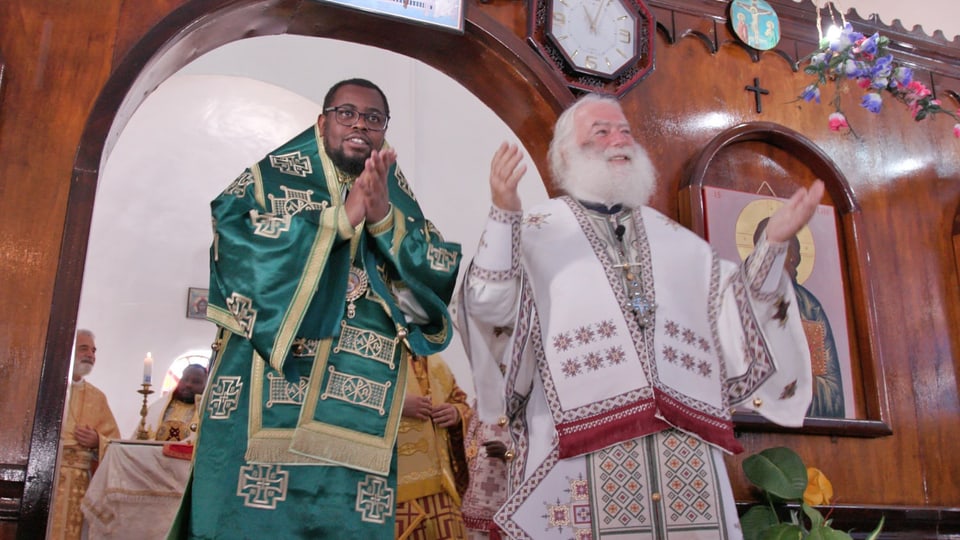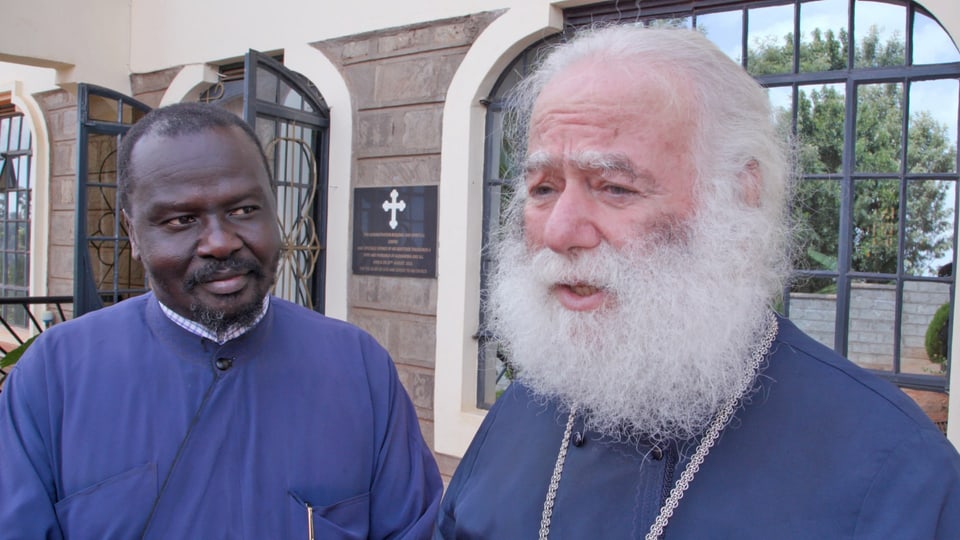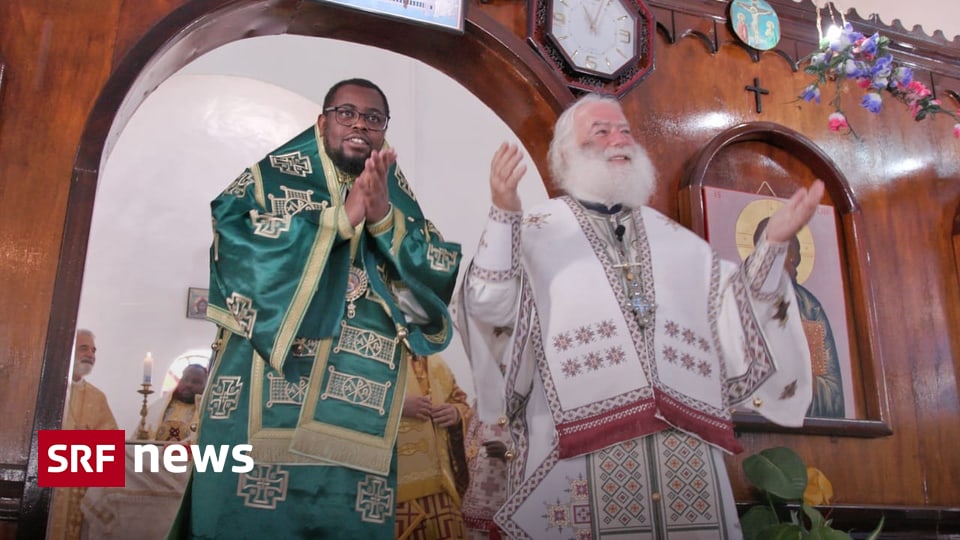The Russians deprive the Greek Orthodox Church of priests. It's about power, money and conflict in Ukraine.
“The apostates did it just for the money,” says Bishop Panaretos. “Judas already betrayed Jesus for a few parts,” the Kenyan churchman is furious.
Apostates are priests of the Greek Orthodox Church who have converted to the Russian Orthodox Church. About a fifth of the clergy of Bishop Panaretos' church defected.
More than 200 new Russian dioceses
The Russian Orthodox Church has poached about a hundred priests in Kenya. Entire church communities were transformed in this way, which was a severe blow to the Greeks.
legend:
Bishop Paneritos of Nyeri is convinced that the Russians took advantage of the plight of the Africans.
srf
Kenya is not the only African country where the Russian Church is expanding. “In the past year and a half, we have opened more than 200 parishes in 25 African countries,” Russian Patriarch Kirill I said at the Russian-African summit this summer. The Russian Church speaks of tens to hundreds of thousands of new believers in Africa.
Weather against the west
Religion is used as an instrument of power. The Russian Patriarch is considered close to Vladimir Putin. In his speech to African leaders, Kirill also emphasized that Africa and Russia share the same conservative values - for example in condemning homosexuality.
The church leader criticizes the West, saying: “We Russians have never viewed Africa as a target for profit and colonialism.” Russia does not feel superior to African countries.
The roots of the conflict in Ukraine
But Russia is of course interested in power, influence and geopolitics. The church dispute is rooted in the Ukrainian conflict. The Ukrainian Orthodox Church broke away from the Russian Church. The Greek Orthodox Church recognizes the independence of Ukrainians.

legend:
Great joy after the inauguration of the new bishop (left). The Greek Orthodox Church in Kenya celebrates.
srf
Now the Russians are building their own church in Africa. At the end of 2021, Moscow decided to establish two dioceses in Africa.
Defectors receive money
The poaching of priests and parishes is primarily driven by financial means. In Kenya, for example, a defector says the Russians promised him about 800 francs a month, five times what the Greeks paid. But the promised money did not flow in the end. Another priest says he now receives higher compensation.
The statements of the clergy are similar, but difficult to verify. SRF's inquiries to the leadership of the Russian Orthodox Church in Kenya and Russia remained unanswered.
Influence on the Church and mercenaries
At the ordination of a bishop in Kenya, the Greek Patriarch of Alexandria, Theodoros II, said he felt very bitter about Russian expansionism: “The Russian Church is doing everything to expand its dominance in the world. For a few hundred dollars you can buy anyone out.”

legend:
Greek Patriarch of Alexandria Theodoros II (right) is concerned about the expansion of the Russian Church.
srf
Accusation: There is no cheaper place than Africa to buy a priest. This is why Russia is deliberately targeting Africa. Bishop Panaretos adds: “The Russians are exploiting the plight of poor Africans for their own benefit.”
It is parallel to the presence of Wagner's Russian mercenaries in African countries. Here too, Russia was able to influence entire countries and make them stand by it in international organizations with relatively little effort. Global politics can be felt even in Africa's villages and churches.

“Typical entrepreneur. Lifelong beer expert. Hipster-friendly internet buff. Analyst. Social media enthusiast.”








More Stories
This is what it’s really like in tourist areas
Kennedy’s nephew and US presidential candidate: He had a worm in his brain
Judge flees to Belarus – Tusk warns of secret services